Over 30 years of anarchist writing from Ireland listed under hundreds of topics
Working Class Queeroes "Fucking Dregs" Bloc on Pride Dublin 2017
Footage of the Working Class Queeroes bloc on Dublin Pride 2017 including the banner drop before Pride and the bloc smoking up the rainbow flag prior to crossing the river Liffey.
Dublin Pride 2017 - Working Class Queeroes "Fucking Dregs" Bloc
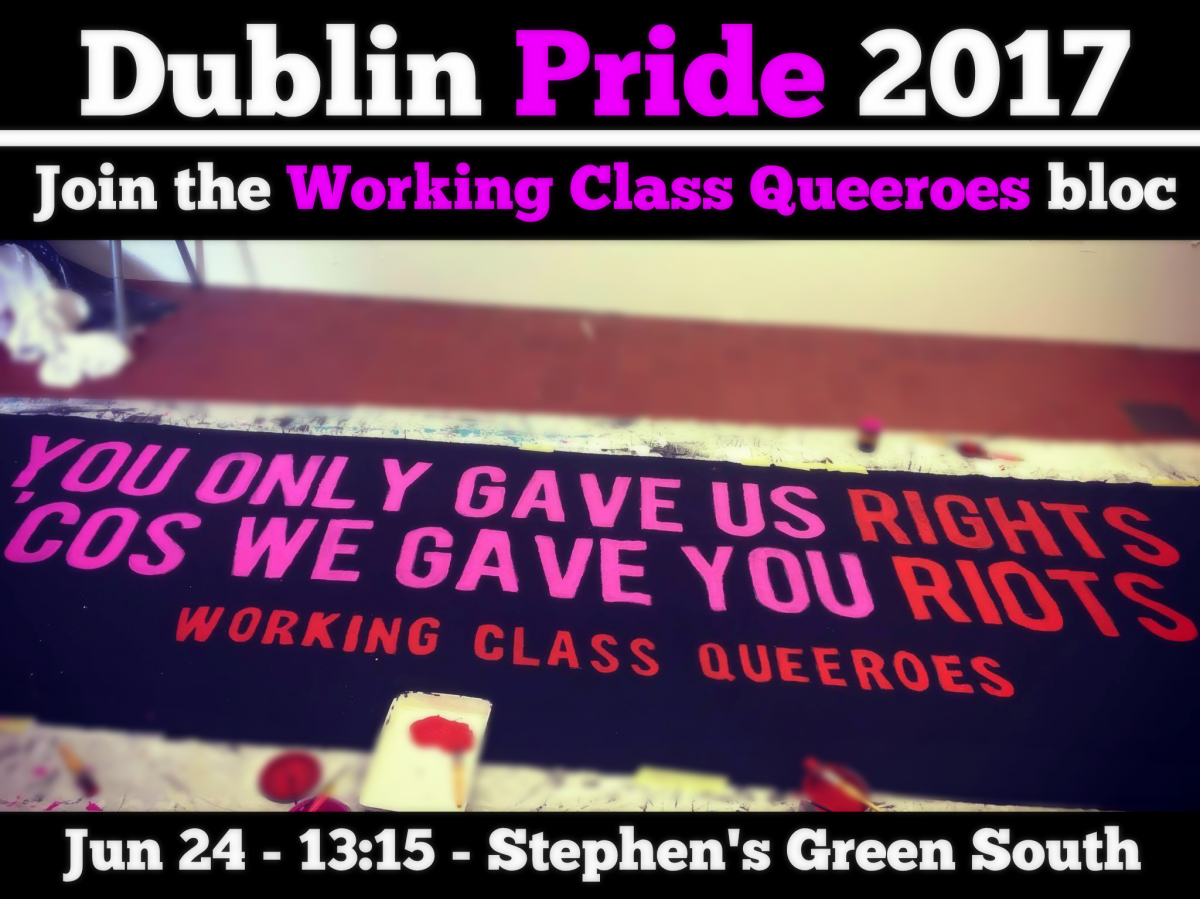 The Dublin LGBTQ Pride Parade is on June 24th.
The Dublin LGBTQ Pride Parade is on June 24th.
A radical bloc, the Working Class Queeroes ("Fucking Dregs"), has been organised to push for a genuine queer liberation which involves neither being the flamboyant PR managers of corporations and parties, nor succumbing to right-wing and conservative ideas or a cis- and homo-focused agenda. Find out more about the Working Class Queeroes here: https://workingclassqueeroes.wordpress.com
Join us at 1:15pm outside HedgeServ, south of St. Stephen's Green.
Organised by those outside and inside the WSM.
Absolute boy - The Youth Revolt that led Corbyn to a victory of sorts
Corbyn’s strong showing in the June 2017 UK elections has given a big morale boost to the left. A considerable youth vote, self-mobilising in larger part as a reaction to the ‘me and mine’ selfish society revealed by the Brexit vote seriously set back Tory plans for a fresh wave of Brexit required austerity. Activists used social networking to overcome what had previously been seen as an all powerful smear machine of the billionaire print press. Very few outside the radical left expected this outcome, what drove it and more importantly where can it lead?
[ This is a long read so you can also listen to an audio of the text ]
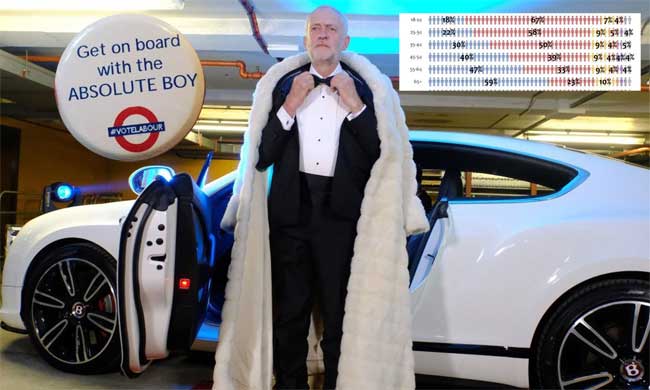
This piece is not going to answer that in terms of assumptions and assertions but as far as possible through hard numbers. 66% of 18-24 year old’s voted Labour, only a quarter of that, 18% voted Tory [p4]. 27% of those 18-24 year olds said the NHS was the most important issue for them, even though they are least likely to need it [p40]. For the over 65 age group this was flipped, only 23% voted Labour and over twice as many (58%) voted Tory [p4]. In fact, given the way the UK election system works, if only 18-24 year olds had voted, Labour would have been heading for 500 seats. If it had only been those over 65 voting the Tories would have had over 400 seats.
Grenfell fire - our live coverages as news of the atrocity become available
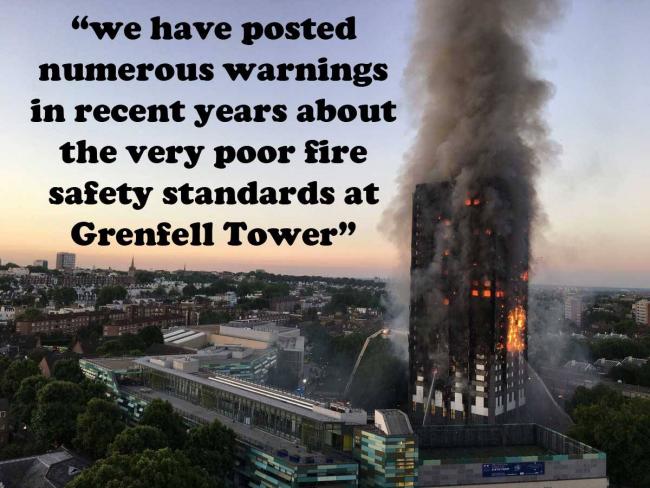
With at least 12 confirmed dead at the London towerblock fire this morning (14th June) it has emerged that repeated warnings to the landlord and council of a fire hazard were ignored. Early reports indicate that tower was home to 120 families, many drawn from poor migrant communities.
The Grenfell Action Group this morning posted "we have posted numerous warnings in recent years about the very poor fire safety standards at Grenfell Tower and elsewhere in RBKC." - they had previously called KCTMO "an evil, unprincipled, mini-mafia" in their blog where 8 warnings about this tower had been posted.
An Anarchist Response to “Anarchists, It Is Our Duty To Vote In Elections”
As the title suggests, this article has been written in response to this article which was written over two years ago just before the last UK General Election and as Hillary Clinton was beginning her campaign for US presidency. Coming from my own knowledge and beliefs on voting I was surprised when reading fellow anarchist Paddy Vipond’s article that he omitted major anarchist arguments against voting. In addition to serving as a response to Vipond’s piece I will discuss what he left out under his headings and address some issues that have become apparent during this current election campaign particularly with the hope that Corbyn’s Labour has sparked among the UK electorate and indeed further than that among the international electoralist left.
Elections: Shouldn't We 'Fight on All Fronts'?
 Some crticise this position, stating something along the lines of:
Some crticise this position, stating something along the lines of:
'But what about social housing, free education, and an increased minimum wage? That's change which will make a big difference to people's lives. And electoralism and grassroots organising aren't mutually exclusive. We shouldn't concede that ground to the right, we should fight on all fronts'.
Social housing, free education, increased minimum wage - there are worthwhile reforms which might be achieved by a left wing government, or might not, but they're fairly beside the point. It's worth remarking though that the best way even to achieve reforms through the state is by having strong social movements which can apply pressure to politicians.
Anarchists, Is It Really Our Duty To Vote?
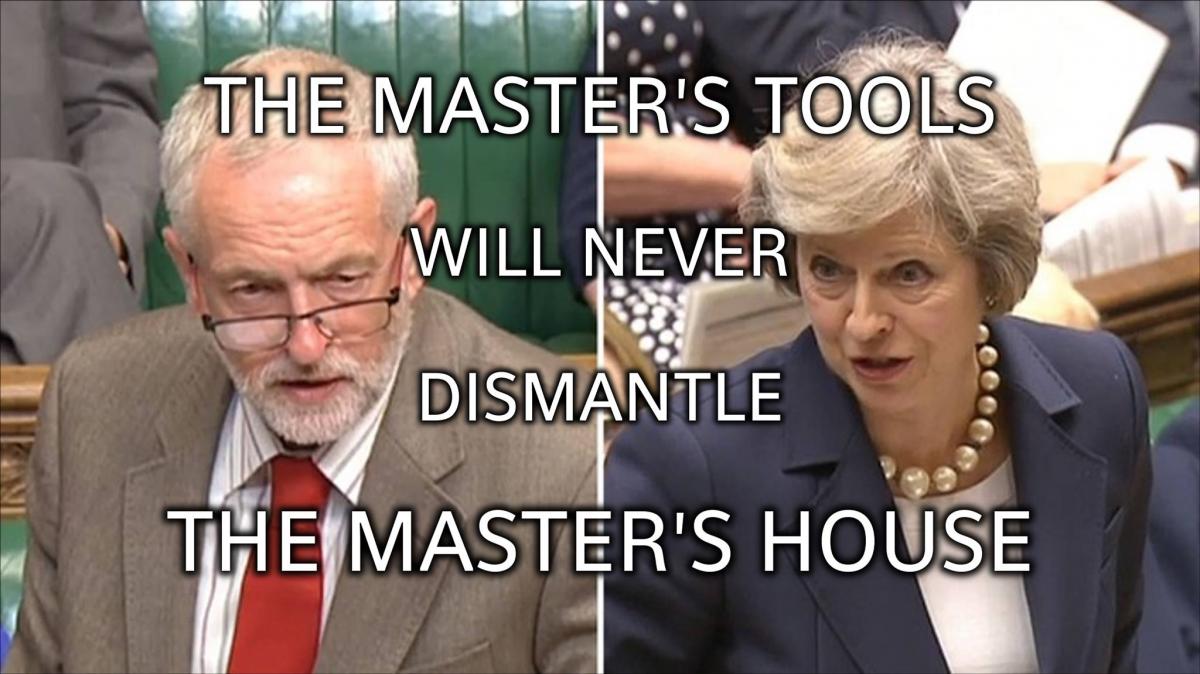 Voting has just ended in the UK election. Many people are consumed with hope that Corbyn could win and implement his reforms “for the many, not the few”. For those of us who work with the broad left, it is inevitable that the topic of elections and voting will come up. Heated debates can occur between those of us who would rather ignore the electoral circus and those who strongly believe in using it as a vehicle on the road to a new society.
Voting has just ended in the UK election. Many people are consumed with hope that Corbyn could win and implement his reforms “for the many, not the few”. For those of us who work with the broad left, it is inevitable that the topic of elections and voting will come up. Heated debates can occur between those of us who would rather ignore the electoral circus and those who strongly believe in using it as a vehicle on the road to a new society.
Before beginning, it is important to clarify the misconception that anarchists are against voting. We have absolutely no problem with voting - how else could we make decisions? We are against a system that allows for us to tick a box every four or five years which gives whoever received the most X’s to make decisions that affect our lives in a fancy building miles away from us. Politicians once elected do what they like because we can neither mandate nor recall them.
Pay Restoration Con of the Politicans, Media and Union Leaders - Decade Later Far from Restoration to 2007 Levels
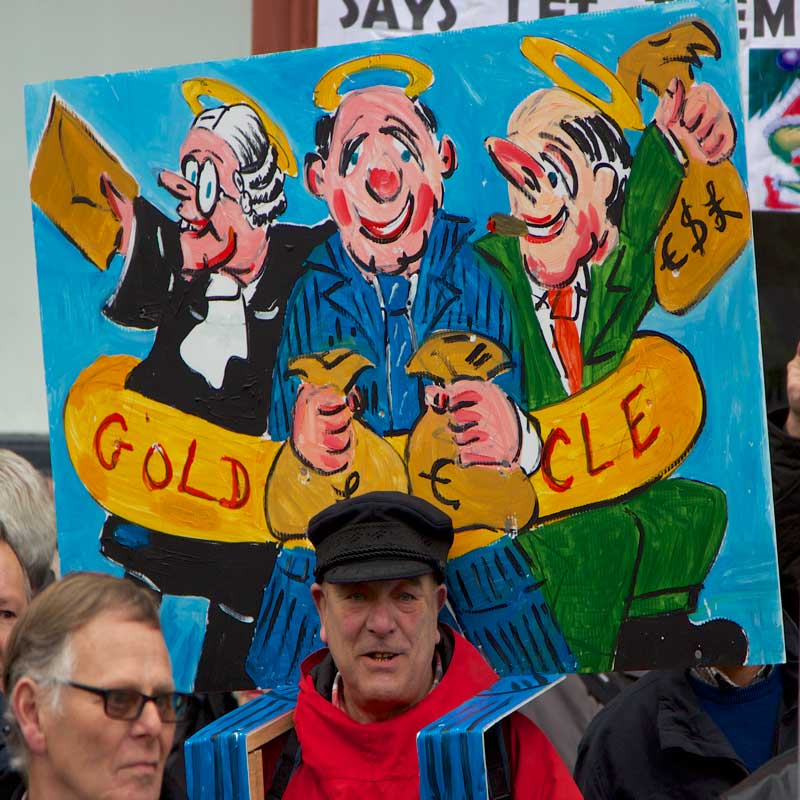 Details of the latest national plan agreed between the government and union leaders have appeared in the media today, as usual well ahead of the union leaders bothering to tell their membership anything. Then union leaders intention is to present workers with a ‘take it or leave it’ choice accompanied by dire warnings that there is no choice.
Details of the latest national plan agreed between the government and union leaders have appeared in the media today, as usual well ahead of the union leaders bothering to tell their membership anything. Then union leaders intention is to present workers with a ‘take it or leave it’ choice accompanied by dire warnings that there is no choice.
The deal as expected is pretty rotten and in effect ensures that the pay cuts imposed on public sector workers from 2009 will at least partially be in place for some workers a full decade and a year later in 2020. What’s even worse is that the worse pay and conditions imposed on workers employed after 2012 are being set in stone rather than overturned. This despite it seeming an essential basic demand of a union that workers doing the same work should receive the same pay.
THE WORMS THAT SAVED THE WORLD - a review of a brilliant children's book
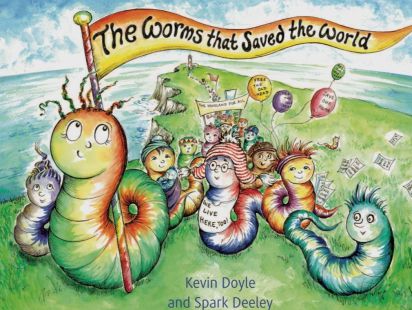 THE WORMS THAT SAVED THE WORLD is an illustrated children’s book about a rebellious group of earthworms who fight to save their home from a luxury golf course that takes over their headland. Written by Kevin Doyle and illustrated by Spark Deeley, the book introduces us to Connie and her friends as they band together to save their community and their home.
THE WORMS THAT SAVED THE WORLD is an illustrated children’s book about a rebellious group of earthworms who fight to save their home from a luxury golf course that takes over their headland. Written by Kevin Doyle and illustrated by Spark Deeley, the book introduces us to Connie and her friends as they band together to save their community and their home. Cop on comrades - over 250 women respond to left attack on 'Identity Politics'
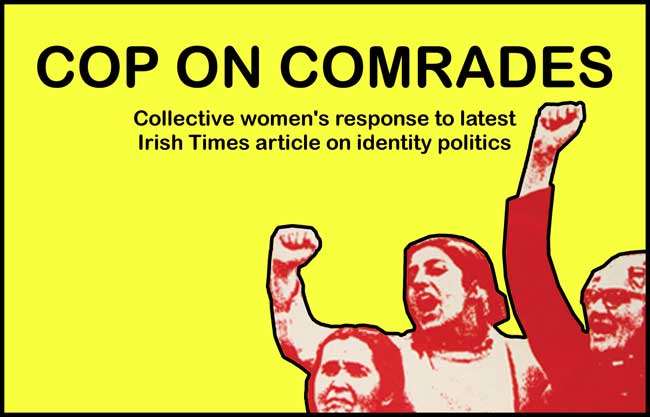 The following has been written by a collective of women activists in Ireland in part in response to an article that appeared in the Irish Times on Identity Politics and the way 'men on the left' engaged with that article. The version here is the original form as published meaning the signatures are those who were involved at some level in the drafting process. Additional names were added after publication, see link at the end. One of our members, Andrew, produced a timeline of key documents and discussion around this piece which explains the context in a lot more details.
The following has been written by a collective of women activists in Ireland in part in response to an article that appeared in the Irish Times on Identity Politics and the way 'men on the left' engaged with that article. The version here is the original form as published meaning the signatures are those who were involved at some level in the drafting process. Additional names were added after publication, see link at the end. One of our members, Andrew, produced a timeline of key documents and discussion around this piece which explains the context in a lot more details.

